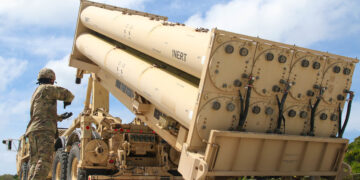June 13, 2019
Expect U.S.-Iran escalation unless “maximum pressure” is replaced with a diplomatic off ramp
FOR IMMEDIATE RELEASE:
June 13, 2019
Contact: press@defensepriorities.org
WASHINGTON, DC—Today, Secretary of State Mike Pompeo accused Iran of being responsible for attacks on two oil tankers in the Gulf of Oman and asked Tehran to “meet diplomacy with diplomacy.” Defense Priorities Policy Director Benjamin H. Friedman issued the following statement in response:
“If evidence is provided that shows Iran is responsible for today’s attacks, it won’t be a surprise. Realists have long cautioned Iran would not respond to ‘maximum pressure’ by capitulating or negotiating—it would instead retaliate with direct or proxy attacks or by restarting its nuclear weapons program.
“Iran will not ‘meet diplomacy with diplomacy’ as long as U.S. policy is aimed at regime change by strangling Iran’s economy. The most likely result of the current path is a cycle of escalation that brings us closer to war, which President Trump says he does not want.
“To avoid war while actually reducing undesirable behavior from Iran, the United States should provide a diplomatic off ramp to address disputes. Demanding across-the-board concessions is a dead end.”
More on Iran

By Peter Harris
February 1, 2026

Featuring Rosemary Kelanic
January 23, 2026

Featuring Rosemary Kelanic
January 23, 2026
Events on Iran






